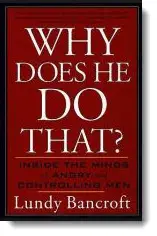
How many times have you felt stuck in the middle of an argument by two people that you love? You can see both sides of things, but there’s an impasse and the relationship appears to be falling apart, or the opportunity will be lost and at no small cost to those involved.
In the case of children involved in a marital dispute, they just want Mommy and Daddy to stop fighting. In the case of a business deal, or government shutdown, people want an agreement to be made that will allow people to move on with their lives without paying a higher price for someone else’s poor decisions or stubbornness.
Arguments arise and are as old as mankind has been on the planet. You’d think that after so much time on the planet, we would have figured out how to resolve our differences more effectively! Alas, every person has a different personality, cultural upbringing, family influences, religious beliefs and life experiences which come together to form beliefs and perceptions.
It’s easy to get caught up in the drama of the moment. Who is screaming the loudest? Who is the most convincing talker? Why can’t two people just get along?


The key to understanding who is ‘right’ and who is ‘wrong’ is to first change what you think is right and what is wrong. The terms “right” and “wrong” defer to a final judgment call. Passing sentence on one person or the other doesn’t solve the problem that caused the disagreement in the first place.
So how do you determine which side to take? Instead of calling something “right” or “wrong” try viewing it as “beneficial” or “not beneficial”.
In order to do that, you will need to listen very deeply to what is being said. Emotions are going to flare and people will hit their emotional limit and express those emotions in unfortunate ways, which sometimes they will later regret. (we’ve all been there and done that) But just because an emotion is expressed in a dramatic way, or suppressed to the point that you can’t tell what a person feels … only gives you a partial clue.
Listen to what is being said in the discussions. Is someone blaming someone else? Is someone speaking about task issues while the other person is speaking about relationship issues?
Is one person expressing a perception while the other is expressing an opinion or belief? How do you know which is which? Here’s a quick definition:
- perception – pulling together pieces of information that you have experienced or observed in order to create your view of life and things.
- belief – confidence, faith, trust
- opinion – a personal view
All three of these things support the choices and decisions that each individual makes throughout their life.
In the case of dating and marriage, this is what draws two people together in a healthy way and in an unhealthy way.

A woman who is convinced in her heart that she will never be loved because of the internal and external messages she received as a child, will grow up to make unfortunate choices of a suitable mate. She will seek out those who have self-esteem issues lower than her own (because she really isn’t worth someone better) and/or, she will marry someone who is incapable of loving in the way that she desires, needs and deserves to be loved.
A man who has been betrayed over and over by those he has trusted and has learned from childhood that to trust and love without reserve will only result in pain and abandonment, will learn how to withhold his love and only seek to meet his own needs as a means of protection. He chooses a women unconsciously who will allow his selfish behavior and who will do everything in her power to meet those needs.
As the years roll by, the woman gives and gives to her husband, while receiving nothing back in return. Her internal belief that she will never be loved by a man set her up to choose a man who is incapable of loving her – thereby confirming that her belief is “right” and true.

A person who grows up in an abusive household thinks that by avoiding that type of abuse that they will avoid abusive relationships altogether. But that isn’t the case. Addictions and abuse manifest in many different ways, and trading one type of abuse for another is extremely common. Why? Because it’s familiar and it confirms the toxic internal belief that goes with a person’s personal identity.
There isn’t a person on the planet who hasn’t experienced toxicity in their life which has shaped their internal belief systems. There also isn’t a person on the planet that can’t take those beliefs and do the work to uncover what is beneficial and what is not beneficial.
In the case of a married couple, one partner who is receiving the least benefits from the other partner may begin to realize and take action to change the marital dynamics in order to receive more of what they need to live a better life. In the case of the partner who has given and given and given while receiving none of what they need in return, the battle is a hard uphill and challenging battle that will touch on every internal belief system that they have carried their entire life.
Confusion, doubt, fears, anger, resentments and rage will begin to surface out of the desperate need to be seen and heard. The partner who has received all the benefits won’t understand their spouses struggle and it will appear as though their behaviors have changed overnight and there must be something wrong with them.

It is our nature to find meanings to events. We need to do this in order to put the experience in a certain category that will suit us to make better decisions in our lives. The caveman sees a man get to close to a saber-tooth tiger and watches him get mauled. He perceives the danger of approaching a predator as deadly, he believes that all predators are dangerous and he develops the opinion that the killed hunter was a fool.
What he didn’t know was that the killed man was trying to save his child who had wandered away. Concluding or putting meaning to the man’s actions is a judgment call. Judgments are opinions that have been finalized. The man wasn’t a fool. He was a desperate father trying to save the life of his child.
What we fail to do when confronted with conflicts is to gather all of the information. Anxious to have the conflict over quickly, we’ll draw conclusions, develop opinions and pass judgments based up what we perceived was happening, not on truth.
Clues to what is the REAL problem (not the perceived one) is to gather more information. What is one person saying that the other person is not hearing?
Is someone defending their behaviors or making excuses or deflecting questions with accusations and blame?
Is one person begging to be heard while the other person is calling them names or talking about everything that matters to them and showing no concern for the other party?
Scripture tells us that if we judge another person, we too will be judged with the same type of judgment that we passed on the other person. (Matthew 7:1)
So, how are you to know who is right and who is wrong? Or rather, who’s communication is beneficial and who’s is not beneficial? Who’s behavior is beneficial and who’s is not? By looking at the fruits of their actions, thoughts and words.

Galatians 5:19-21 says “The acts of the flesh are obvious: sexual immorality, impurity and debauchery; 20 idolatry and witchcraft; hatred, discord, jealousy, fits of rage, selfish ambition, dissensions, factions 21 and envy; drunkenness, orgies, and the like. I warn you, as I did before, that those who live like this will not inherit the kingdom of God.”

Anyone who expresses one, a few or all of these behaviors is acting out of their own selfish interests with complete disregard to anyone else.
This passage in Galatians goes on to describe how to restore a person who is caught up in such sins. That we are to restore them gently and lovingly – lest we fall into sin (judgment, resentment, revenge, etc.)
Not all people want to give up their selfish behaviors. To them, Galatians points out that …
“7 Do not be deceived: God cannot be mocked. A man reaps what he sows. 8 Whoever sows to please their flesh, from the flesh will reap destruction; whoever sows to please the Spirit, from the Spirit will reap eternal life. 9 Let us not become weary in doing good, for at the proper time we will reap a harvest if we do not give up. 10 Therefore, as we have opportunity, let us do good to all people, especially to those who belong to the family of believers.”
Arguments exist because one person is not being heard and the other is looking out for their own interests, or both are only looking out for their own interests and there was never a relationship with either of them in the first place.

But in the case of one who is trying to be heard, you’ll see very different behaviors in what they do and say. Often they will be silent because to speak out will only allow a door to open for them to say things they don’t want to regret later.
To the observer, it may appear that because one partner never spoke up, that they were in agreement with the behaviors and actions of the other all along. This is actually in part, true. Love self-esteem will convince a person that they have no identity, therefore they have no right to protest or to set boundaries.
However, as a person continues to grow and reap a harvest of pain and death from their silence, they will, out of desperation to survive and live, begin to speak up. This is when conflict arises.
It is only for God to judge – we cannot judge a person because we never have all the facts. But we are encouraged to judge the fruits – or works of the flesh so that we can know what it is that we are dealing with. Is it sin? Is it law? Or is it love?
We’ve already looked at the works of the flesh which is the result of sin. How do the behaviors of a heart humble before the Lord and submitted to His will express itself?
Galatians 5:22-23 says, “22 But the fruit of the Spirit is love, joy, peace, forbearance, kindness, goodness, faithfulness,23 gentleness and self-control. Against such things there is no law.
Years ago when there was a great deal of strife in our church, I was struck by the fact that here were these people, who called themselves Christian brothers and sisters, passing judgments, spreading gossip and attacking the innocent within our congregation. One a Wednesday night I felt led to teach on the fruits of the spirit and on what love is as addressed in 1 Corinthians 13:4-8 …
“Love is patient, love is kind. It does not envy, it does not boast, it is not proud. 5 It does not dishonor others, it is not self-seeking, it is not easily angered, it keeps no record of wrongs. 6 Love does not delight in evil but rejoices with the truth. 7 It always protects, always trusts, always hopes, always perseveres. 8 Love never fails…”
Much to my dismay I discovered that these words fell on deaf ears because the beliefs, reasonings and judgments had already taken such a strong root that people chose to be “right” in their own eyes, than to be whole.
Proverbs 21:2 says, “A person may think their own ways are right, but the LORD weighs the heart.”
The heart reveals itself by the behaviors a person expresses. Are they expressing patience, gentleness and kindness? Or are they raging and blaming and making false accusations to deflect all eyes from themselves when it comes to who is at fault for the bitter harvest?

When a marriage begins to fall apart, you can be assured that someone hasn’t been heard, nor have their needs for life been met. Someone has pulled the weight of the marriage while the other has enjoyed all of the benefits and given nothing in return.
My chiropractor made an interesting observation while we were discussing why the divorce rate was soaring in our country. He said, I am of the opinion that there are really just three types of marriages.
- There are those who marry for the wrong reasons, figure it out quickly and immediately end the divorce.
- There are those who marry for all the right reasons and live their life out on this planet together, and in love, each working towards bettering themselves and the lives of their partner.
- Then there is the most common of marriages. They marry with very different expectations. One may have married for love while the other married to have their needs met. The one who married for love carries 80% of the marriage while their partner lets them, and periodically will put in 20% of the work in one form or another. This marriage is the one that lasts for years at the cost of the one partner who is doing all of the work and giving, while the other partner reaps the rewards and considers themselves to be in a good marriage while the other one knows the marriage is hell on Earth but is determined to make it work … until the day they snap.
Pride keeps us from working on our own issues. It’s easier to blame another person for your troubles. Whether you blame your spouse or you blame someone else – it’s still the same. You are deflecting from yourself to prevent others from seeing where the problem REALLY lies.
There is a fear that if they were to work on their own stuff, they would appear to be a failure and will fall into defeat in shame. Their fears of this happening and the false image they have worked so hard to cover up their deepest fears is what prevents them from being set free of those lies.
In a desperate attempt to cover up their shame and avoid what they fear the most, they reason away in their minds what they perceive or have convinced themselves is the truth. The reasonings and meanings that they apply to events and their own shattered emotions become lies and accusations.
Who is the father of lies? Who is the Father of truth?
In order to see who is ‘right’ and who is ‘wrong’ you judge the fruits of their behaviors – NOT them. That is for God to do and He will not be made a fool. The person who refuses to repent WILL reap a bitter harvest. Your choice is whether or not you will reap that harvest with them by your silence which is a form of agreement – or if you will pursue truth and facilitate the change that is needed in order to heal yourself and if your partner will respond in kind … your marriage.
Ephesians 6:12 says, “For we wrestle not against flesh and blood, but against principalities, against powers, against the rulers of the darkness of this world, against spiritual wickedness in high places.”
You see … this battle is not between two people. Your unbelieving spouse (yes, even a Christian can be unbelieving) has become a prisoner of the father of lies. They have made choices out of their heart which is now being revealed. They can repent … but some don’t or won’t because they value being “right” more than they value being healed and delivered from their fearful world.
This battle is far greater than a marriage on the edge of divorce. This is a spiritual battle between the liar Satan, who is the lion who prowls about seeking whom he may devour and God, The Father of True, who IS love and who’s mercy endures forever.
“Now therefore fear the Lord and serve him in sincerity and in faithfulness. Put away the gods that your fathers served …choose this day whom you will serve …” Joshua 25:14-15

If you are in a painful and struggling marriage and your spouse is not in agreement with necessary changes that must happen for BOTH partners to be healthy, you may be in an abusive marriage.
Who is the unbelieving spouse? The one who is not living by faith, obviously. Scripture says you will know them by their fruits.
“You can identify them by their fruit, that is, by the way they act. Can you pick grapes from thornbushes, or figs from thistles?” Matthew 7:16
By the way, an expression of pain and anguish is very different from an expression of hatred and selfishness – do not misread them!
Abuse doesn’t have to involve hitting, Abuse can be emotional, spiritual and mental abuse.
I highly recommend the following resources to help you better identify behaviors, lies and deceptions that prevent life the way that God originally intended it to be lived – filled with love, forgiveness, peace, mercy, kindness .. all of the fruits of the spirit towards one another which is a full expression of love. Love is patient … love is kind … love doesn’t demand it’s own way … it is not envious, boastful or proud …
Watch this video and subscribe and watch the rest of Leslie Vernick's videos on emotionally destructive marriages.
To learn more about why men abuse women, read ...

Why Does He Do That?: Inside the Minds of Angry and Controlling Men
A MUST READ for anyone who has been the victim of abuse in the family, is married to an abusive partner, knows of someone who is in an abusive relationship or who counsels or pastors controlling and angry men.
And finally, one of the best poems I’ve ever heard performed by Lily Myers during the CUPSI 2013 event. Her words are not just about food …

